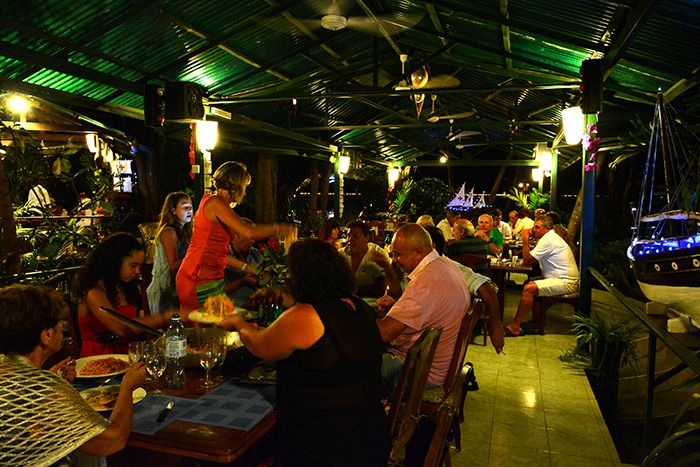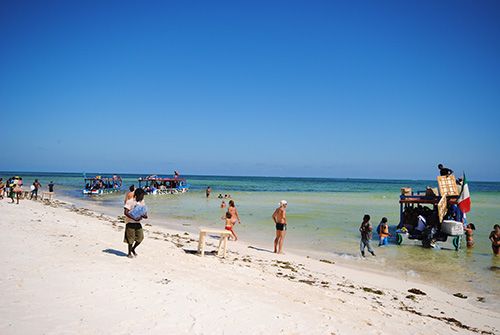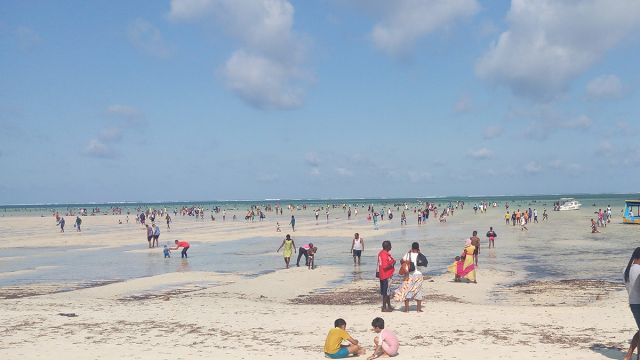
EDITORIAL
30-10-2020 by Freddie del Curatolo

Kenya, and in particular its coast, for years as a phenomenon combined with tourism, every year has that of the arrival of "repeaters".
It is those creatures half tourist and half commuter that have established a fixed and lasting bond with these places.
They have done so both by frequenting it since the nineties, when in addition to holiday packages the so-called "residential tourism" was created, and by buying villas or flats at usually convenient prices, but whose savings were sometimes offset by management and maintenance costs.
But even in more recent times, approaching Malindi and Watamu as "Italian" realities now well established, with all the comforts of a Rapallo or Gabicce of Africa but also equatorial "trademarks" to which they had to get used.
While the former arrived on the shores of the Indian Ocean transported by the African dream and sense of adventure, i.e. by the still post-colonial air and unspoilt nature, the latter would hardly have adapted to a place without food products from home or where you wait a good hour to be served at the restaurant.
The fact is that, until last year, more or less from November to March, these two types of "repeaters" (which means precisely, "he who returns to the same place", but who might also fit the nickname "repeater", since he often learns little from the place where he is staying) have mixed and lived together in harmony, thanks to the beneficial influences of this land.
The pandemic, after having deprived us of the "hit-and-run" holidaymakers brought by charters and tour operators, is also limiting the return of compatriots who were regulars of Kenya, familiar faces for several months.
Is it good or bad not to have the "repeaters" and above all, who will particularly miss them?
Having said that their impact on the general tourist economy of the country is really minimal, surely in Malindi and Watamu their presence (estimated at two or three thousand people a year) will take some gain away from some categories.
First of all the bars.
The repeaters are great coffee drinkers and discreet chatterers, plus they are definitely habitual. Their daily presence in bars serving a good espresso and maybe having a decent croissant will be felt. It is those 200 shillings a day that, multiplied by a few hundred customers divided by seven to eight of the most frequented bars, will make themselves heard over long distances.
Even Italian restaurants will have a slight economic damage, but we think they will be able to take advantage of it to increase their self-esteem. The "repeaters" are very demanding people who, if often in Italy they don't have trouble paying a "Camogli" at the autogrill 6 euro 50, in a pizzeria in Malindi they are able to make Turkish scenes for the 500 shillings of an excellent Capricciosa.
But not only that, they must be given the best table, they must be able to choose the waiter who will serve them, the speed of the fan and their bottled wine will often taste like cork and will have to be changed, especially those with screw caps.
Joking aside, a clientele that goes out to eat for six months at least twice a week is always a good income and should of course be pampered, in every corner of the world (except Liguria...).
The local supermarkets will miss it most of all, especially the Indian and Arab ones. Because spaghetti can be given up because of the local basmati rice, wine can be put before Tusker, but the palm leaf or the front page of the Daily Nation cannot compensate for toilet paper and sea water will never be a good detergent for dishes.
In terms of "informal" economy, repeaters will be missed by tuk-tuks and bajajs, who took twice as much as a local passenger on the races, houseboys and occasional cooks, heavy bag-holders, translators from Swahili to macaronic Italian, the questers who in the end took sixty shillings a day from one or the other for the quiet life, as well as, of course, students or "personal trainers".
Mosquitoes, chlorine in swimming pools, crows on palm trees, and repairers of anything ready to break down again soon will miss them.
Above all, they will miss their Africa.
TOURISM
by redazione

Kenya is among the first countries in the world to which Italians wanted to return immediately after the end...
EDITORIAL
by Freddie del Curatolo

There is a good chance that 2021 will be the year of the return of Italian and ...
HOSPITALITY
by redazione

The historic Barracuda Inn resort, which stands on one of the most choreographic beaches of Watamu and...
EDITORIAL
by Freddie del Curatolo

The Kenyan tourism industry, and not only the Italian one, looks at January 31st as a possible liberation...
REPORT
by Freddie del Curatolo

Yesterday the "Kenya Tourism Sector Performance Report", an annual document on tourism trends in the...

Malindi continues its process of restyiling while waiting for the return of tourism: the local one ...
TOURISM
by Freddie del Curatolo

Holidays in the resorts of Kenya at Christmas? Mass tourism but also repeaters who...
RULES
by redazione

The grip of the Kenyan taxes is tightened on those who rent houses, villas and apartments...
EDITORIAL
by Freddie del Curatolo

A positive season for Italian tourism on the Kenyan coast draws to a close. As it does every year and, accomplice...
FLIGHTS
by redazione

It's official, the national airline Turkish Airways will not fly to Mombasa in the coming...

Tourism on the Kenyan coast is back to 2019 levels, with 92 percent occupancy on average for the...
TOURISM
by Freddie del Curatolo

The data from the Kenyan Ministry of Tourism regarding the influx of visitors to the country are flattering and bear...